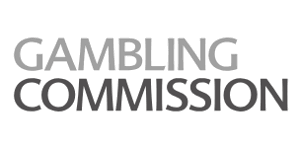Should Broadcasters Take Responsibility for Gambling Problems Today?
 Changes are abounding in the United Kingdom with regard to its gambling scene. Since 2005, the country has had quite the liberal gambling scene, with both online and offline activities being readily available to access. Naturally, this has helped to see the government’s coffers increase in tax revenue, but it has also led to a rise in the number of people suffering from gambling addiction. Campaigners have come out in force, and even a coalition of MPs from different parties have united in force to try and change things in the sector.
Changes are abounding in the United Kingdom with regard to its gambling scene. Since 2005, the country has had quite the liberal gambling scene, with both online and offline activities being readily available to access. Naturally, this has helped to see the government’s coffers increase in tax revenue, but it has also led to a rise in the number of people suffering from gambling addiction. Campaigners have come out in force, and even a coalition of MPs from different parties have united in force to try and change things in the sector.
It is due to this that the government has taken on the decision to review and rework the Gambling Act 2005. This will see the powers that be make alterations to it, ensuring that today’s UK gambling scene is effective enough for the modern, digital age. Various changes and alterations have already been suggested and recommended for it, and the review is still in progress. However, can it really be solely down to the liberal nature of the Gambling Act that problem gambling has increased?
It may be a lot more appropriate to ask whether or not broadcasters of major sports should also be held responsible. The new laws that are likely to come in with the change around in the Gambling Act will like ban or severely curb betting advertisements in the sporting industry and potentially restrict shirt sponsorships alongside. But, shouldn’t the broadcasters who provide this influx of sponsorship money be held accountable for promoting the gambling industry to an even greater level? Various companies, such as Sky Sports, are the official broadcast partners of the Premier League, for example, and they also have their name plastered all over a betting brand, Sky Bet; that they promote heavily through Sky Sports. What role have these broadcasting companies taken in the gambling world and why does it matter?
Promoting Gambling in a Roundabout Way
 As things stand at the moment, there are four major broadcasters who televise the Premier League in the United Kingdom. They are Sky Sports, BT Sport, Amazon Prime Video and BBC Sport. Two official radio broadcasters are also active in this scene – BBC Radio 5 Live and Talk Sport. In the same vein, if you were to look at something like Wimbledon, this has broadcasting deals with the BBC and ESPN. Therefore, major broadcasting companies proceed with airing events from the sporting world every year.
As things stand at the moment, there are four major broadcasters who televise the Premier League in the United Kingdom. They are Sky Sports, BT Sport, Amazon Prime Video and BBC Sport. Two official radio broadcasters are also active in this scene – BBC Radio 5 Live and Talk Sport. In the same vein, if you were to look at something like Wimbledon, this has broadcasting deals with the BBC and ESPN. Therefore, major broadcasting companies proceed with airing events from the sporting world every year.
Would there be as much demand for Premier League football or other highly popular sports as there is today without companies like Sky? It’s only clear to see that once there is a market there, demand will be constant, and avid fans want a constant influx of sports and news surrounding their favourites. Sky is able to provide this through its news channels, its online website and various other mediums.
How does this connect to gambling? Well, of course, sports betting is something that many sports fans involve themselves in. If you know something about your favourite sport(s), then why wouldn’t you try and get yourself a big monetary win from that knowledge? And as it happens, where Sky is concerned, it launched its own online betting site, entitled Sky Bet. That creates a direct connection to gambling via the broadcaster, but also, there are indirect ways towards this, too.
It is not uncommon for football teams, tennis players, rugby clubs and so on to be sponsored by specific brands. Gambling companies are well-known for sponsoring football teams, with the 2020/2021 Premier League seeing eight teams sponsored by such. That’s double the number of those sponsored by financial services, which is ranked second for number of Premier League sponsorships. Teams like Burnley, Fulham and West Ham are sponsored by betting brands, including Love Bet, BetVictor and Betway, respectively.
Sky Bet, on the other hand, serves as the title sponsor to all three of the tiers of the English Football League, and this has been the case since the 2013-14 season. The deal was extended in 2017 for another five years, which would start with the 2019-20 season and continue running until the 2023-24 season. And while it is described as a partnership that is there to raise awareness about the proper regulation of the UK betting markets and promote responsible gambling, it could be suggested that the opposite has occurred.
With Sky and the other broadcasters so frequently airing sports events and pushing news and other features onto us that both readily promote the sports betting industry, can it be said that the sector would have risen to such a level without them?
Betting & Media Firms Fund Addiction Awareness
 In September of 2017, it was revealed that various betting companies had united with broadcasters to push forth with an offer to the UK government. This would see them fund an addiction awareness campaign for a total of £8 million. At the time, the Labour party warned that it should not be utilised as a sort of “stitch-up” to be able to curb the potential strengthening of regulations where advertisements were concerned.
In September of 2017, it was revealed that various betting companies had united with broadcasters to push forth with an offer to the UK government. This would see them fund an addiction awareness campaign for a total of £8 million. At the time, the Labour party warned that it should not be utilised as a sort of “stitch-up” to be able to curb the potential strengthening of regulations where advertisements were concerned.
This joint offer was put in place so as to show the companies’ commitment to taking on the increased level of gambling addiction in the UK. However, they described it as a “consequence of the government’s gambling review”, and not really placing any of the focus on their own contribution to the rising problem gambling figures in the country. This led to Labour’s deputy leader at the time, Tom Watson, to comment on the timing of the campaign as being quite worrying.
Whether or not brands like Sky and BBC Sport were included amongst the broadcasters providing that offer to the government was never revealed.
Of course, it can be said that with them teaming up with betting companies in the first place in order to create the high level of demand and excessive sponsorship deals, they are the ones who contributed to the current problem. It isn’t likely that Sky, Amazon Prime Video or any of the other broadcasters will admit this sort of involvement, though.
Do any of these broadcasters or associated sponsoring companies actually do anything to help fund gambling addiction recovery and prevention?
Gambling Pledges But Broadcasters Nowhere To Be Seen
 A couple of years after the proposed addiction awareness campaign by betting companies and broadcasters, the betting companies themselves took the bull by the horns. Several brands united and pledged to contribute more money to fund the treatment of problem gamblers in the UK. Those companies – William Hill, Ladbrokes Coral, Paddy Power Betfair, Skybet and Bet 365 – opted to increase their voluntary levy on gambling profits to cater to this.
A couple of years after the proposed addiction awareness campaign by betting companies and broadcasters, the betting companies themselves took the bull by the horns. Several brands united and pledged to contribute more money to fund the treatment of problem gamblers in the UK. Those companies – William Hill, Ladbrokes Coral, Paddy Power Betfair, Skybet and Bet 365 – opted to increase their voluntary levy on gambling profits to cater to this.
Initially, the companies were offering a voluntary amount of 0.1% from their profits to help with gambling addiction. Yet, in 2019, they chose to increase this amount to 1% of their profits instead, equating to a contribution of around £60 million. Of course, Skybet is connected to the Sky broadcaster in name and in its origins, but it is no longer owned by Sky. Therefore, it is likely that this decision had little to do with the broadcaster when it was announced. Still, having their brand name plastered all over a betting site, whether they own it directly or not, is still irksome for some people who think they should take more responsibility/
“We do think we need to increase the amount of money that is available to protect the young and vulnerable”
Said Peter Jackson, the CEO of Flutter Entertainment, at the time.
Yet, there was nothing in terms of contributions within this voluntary pact by gambling companies from broadcast companies. While the likes of Sky could have utilised some of their billions of pounds in broadcasting profit to assist with gambling addiction, they instead chose not to. Their funds were redirected to sponsoring and the potential broadcast of even more sports in a more likely scenario.
And despite this being the case, calls have been raised for gambling firms to be responsible for paying even more tax to fund addiction treatment. Only a few months ago, a director within the NHS said that companies should be forced into providing extra funds. Claire Murdoch, who operates as the national mental health director for NHS England, denounced the current voluntary system that is in place. Through that, the industry gets to decide upon how much it will contribute towards problem gambling. According to Murdoch, since April 2020, a total of 750 people have been referred to specialist clinics for treatment relating to serious gambling addiction.
The lockdowns of 2020 ensured that a large surge in people spending at online casinos, sportsbooks and so on took place. Murdoch has previously criticised betting companies for tempting gamblers with VIP programs and free bet offers and targeted the industry’s meagre contributions towards helping those addicted players.
Once again though, there was little said about the broadcasters who consistently air events from the sporting world. With the demand for that being there, advertisements for gambling (whether that be commercials aired on television or logos displayed on players’ shirts) are being seen by more and more people. Why would it not be an ideal outcome to also target these broadcasting companies, which arguably pump their own fair share of money into the sports scene? Could they not use some of that to assist with the treatment and prevention of addiction?
At the end of the day broadcasters like Sky helped turn sport, especially football, into the corporate money machine it is today. Gambling companies were cash rich and encouraged to sponsor clubs to get their adverts on TV and into the media through the very animal the broadcasters have created. Sky and others have made literally billions from betting companies directly and indirectly and should potentially now accept some of the responsibility.
Gambling-Related Harm To Be Slashed, Says UKGC
 In 2019, the UK’s regulatory body, the Gambling Commission said that it had a three-year strategy in place to be able to tackle gambling-related harm. Through it, the plans were to slash harm from gambling addiction in a much faster way. Yet, even through this, the Commission brought together health bodies, charities, regulators and businesses. There was little mention of bringing broadcasters into this scenario.
In 2019, the UK’s regulatory body, the Gambling Commission said that it had a three-year strategy in place to be able to tackle gambling-related harm. Through it, the plans were to slash harm from gambling addiction in a much faster way. Yet, even through this, the Commission brought together health bodies, charities, regulators and businesses. There was little mention of bringing broadcasters into this scenario.
The national strategy thought up by the regulatory body was to focus on prevention, education and treatment of those addicted to gambling. Prior to this announcement, the GVC brand, which owned Ladbrokes, Coral and Gala at the time, and William Hill said they would change their advertising practices. Both decided to stop sponsorship of football shirts, while GVC (now called Entain) added its halt of perimeter advertisements.
A call was also made to end all UK sports betting broadcast advertising taking place at any time of day, on both live and repeated sporting events. A whistle to whistle ban on such advertisements was brought into effect not long after, but it has had marginal effect on the figures. Clearly, there is space for the broadcasting companies to do much more than they current are to help tackle the problem.
Change Association Between Gambling and Sports
 The Head of News and Current Affairs at Channel 4, Louisa Compton, spoke of the need to “fundamentally change the relationship between football and gambling” earlier this year. And her words were backed up by former leader of the Scottish Conservatives, Ruth Davidson.
The Head of News and Current Affairs at Channel 4, Louisa Compton, spoke of the need to “fundamentally change the relationship between football and gambling” earlier this year. And her words were backed up by former leader of the Scottish Conservatives, Ruth Davidson.
She spoke of being a football fan all her life, before stating that she has watched as
“our national game has become saturated by gambling logos. From leagues to broadcasts, shirts to stadiums, gambling firms have infiltrated every book and cranny of the game and use footy fans to push other products”.
Davidson took the decision to see what kind of harm was being done by the oversaturation of gambling within the sporting world.
Sky is not likely to really admit any massive sort of involvement, though. Back in 2018, it almost outrightly stood against the ban of gambling advertisements, saying that the value of TV sports rights contracts would decline as a result. This opinion was backed by BT Sport at the same time, with both broadcasters having agreements with bookmakers for their coverage of the Premier League. Rather than try to figure out a way that Sky could help with tackling gambling addiction though, the Sky UK & Ireland CEO, Stephen van Rooyen said that the industry spends five times as much on social media promotion in comparison to TV advertising. Therefore, he said, it should look towards its online spending, rather than the televised advertisement of sports betting.
“If the Remote Gambling Association (RGA) and gambling companies are serious about protecting vulnerable gamblers, then they should start by looking at where they spend the most money, what has the least level of regulation and where there is most evidence of harm: the online world”,
van Rooyen said. And while he denied that those were the words of a broadcaster scared of losing TV ad revenue, it seems little worth him mentioning it if there was no cause for concern.



